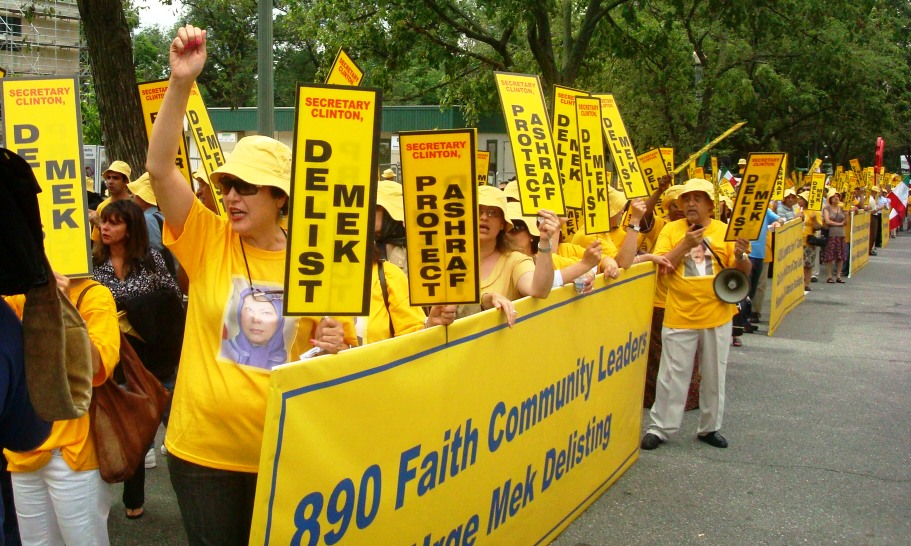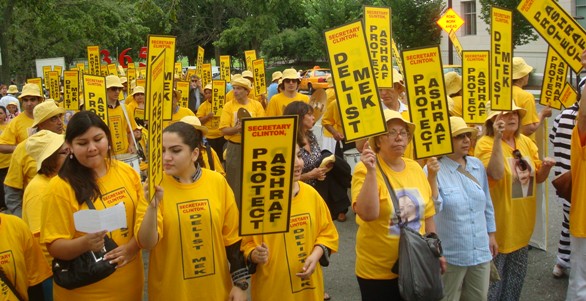The pro-MeK side argues that the MeK has a history of cooperating with Washington, providing valuable intelligence on Iranian nuclear plans and tactical intelligence about Iranian efforts in Iraq. Further, just as the MeK’s organizational and leadership skills helped bring down the shah in 1979, these skills can again facilitate regime change. The number of street protestors arrested for association with the MeK points to its role in demonstrations, as do slogans echoing MeK chants, e.g., calling Supreme Leader Ali Khamenei a “henchman,” Pres. Mahmoud Ahmadinejad a “dictator,” and shouting “down with the principle of Velayat-e Faqih” (that a religious figure heads the government).
A number of fomer high-level American officials advocate delisting the MeK, including a national-security adviser (James Jones), three chairmen of the Joint Chiefs of Staff (Hugh Shelton, Richard Myers, Peter Pace), a secretary of Homeland Security (Tom Ridge), an attorney general (Michael Mukasey), and even a State Department coordinator for counterterrorism (Dell Dailey). A chorus of prominent Republicans and Democrats favor delisting, including a bipartisan group of 80 members of Congress.
The anti-MeK faction does not address the benefits of delisting but argues that the U.S. government must continue the listing on the basis of allegations of terrorism. Their indictment notes that the MeK killed six Americans in the 1970s. Whether or not these allegations are accurate, a terrorist incident must have occurred within two years to continue with the terrorist-group designation — rendering discussion of the 1970s completely irrelevant.
What about the past two years? The pro-MeK side points to three main U.S. terrorist databases — the RAND Database of Worldwide Terrorism Incidents (RDWTI), the Global Terrorism Database (GTD), and the Worldwide Incidents Tracking System (WITS) — and notes that in each one the MeK comes up clean since 2006 or earlier.
What about capabilities and intentions? The State Department’s 2006 “Country Reports on Terrorism” accused the MeK of maintaining “capacity and will” for terrorist acts but the 2007, 2008, and 2009 reports omitted this statement. Britain’s Court of Appeal derided proscription of the MeK as “perverse,” and the group was removed from the U.K. terrorist list in 2008. The European Union cleared the group of terrorism charges in 2009. The French judiciary dismissed all terrorism-related allegations against the group in May 2011.
In brief, the argument to maintain the MeK’s terrorist designation is baseless.
Following a court-mandated review of the MeK’s terrorist designation, the secretary of state must soon decide whether to maintain this listing. With one simple signature, the Obama administration can help empower Iranians to seize control over their destiny — and perhaps end the mullahs’ mad nuclear dash.
— Mr. Pipes is president of the Middle East Forum and Taube distinguished visiting fellow at the Hoover Institution of Stanford University. © 2011 by Daniel Pipes. All rights reserved.


